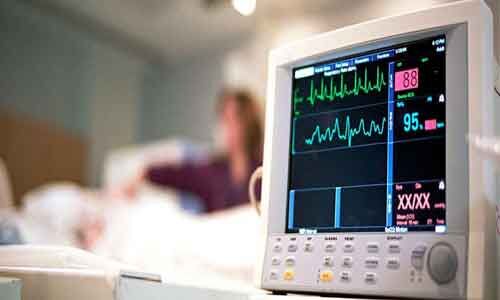- Home
- Medical news & Guidelines
- Anesthesiology
- Cardiology and CTVS
- Critical Care
- Dentistry
- Dermatology
- Diabetes and Endocrinology
- ENT
- Gastroenterology
- Medicine
- Nephrology
- Neurology
- Obstretics-Gynaecology
- Oncology
- Ophthalmology
- Orthopaedics
- Pediatrics-Neonatology
- Psychiatry
- Pulmonology
- Radiology
- Surgery
- Urology
- Laboratory Medicine
- Diet
- Nursing
- Paramedical
- Physiotherapy
- Health news
- Fact Check
- Bone Health Fact Check
- Brain Health Fact Check
- Cancer Related Fact Check
- Child Care Fact Check
- Dental and oral health fact check
- Diabetes and metabolic health fact check
- Diet and Nutrition Fact Check
- Eye and ENT Care Fact Check
- Fitness fact check
- Gut health fact check
- Heart health fact check
- Kidney health fact check
- Medical education fact check
- Men's health fact check
- Respiratory fact check
- Skin and hair care fact check
- Vaccine and Immunization fact check
- Women's health fact check
- AYUSH
- State News
- Andaman and Nicobar Islands
- Andhra Pradesh
- Arunachal Pradesh
- Assam
- Bihar
- Chandigarh
- Chattisgarh
- Dadra and Nagar Haveli
- Daman and Diu
- Delhi
- Goa
- Gujarat
- Haryana
- Himachal Pradesh
- Jammu & Kashmir
- Jharkhand
- Karnataka
- Kerala
- Ladakh
- Lakshadweep
- Madhya Pradesh
- Maharashtra
- Manipur
- Meghalaya
- Mizoram
- Nagaland
- Odisha
- Puducherry
- Punjab
- Rajasthan
- Sikkim
- Tamil Nadu
- Telangana
- Tripura
- Uttar Pradesh
- Uttrakhand
- West Bengal
- Medical Education
- Industry
Admission blood sugar levels tied to higher risk of CV/renal complications in COVID-19 patients

UK: Admission blood sugar levels indicative of both hypo- and hyperglycemia is associated with increased odds of cardiovascular or renal complications in in individuals diagnosed with COVID-19, reveals a recent study. The results, published in the journal Diabetes Care, indicate the utility of admission glucose as a marker for risk stratification of high-risk patients.
Tom Norris, Diabetes Research Centre, University of Leicester, Leicester General Hospital, Leicester, U.K, and colleagues conducted the study with an objective to investigate the association between admission blood glucose levels and risk of in-hospital cardiovascular and renal complications in a multicenter prospective study.
The study included 36,269 adults hospitalized with COVID-19 between 6 February 2020 and 16 March 2021 (N = 143,266). The associations between admission glucose level (mmol/L and mg/dL) and odds of in-hospital complications, including heart failure, cardiac ischemia, arrhythmia, cardiac arrest, stroke, coagulation complications, and renal injury were explored using logistic regression models. Restricted cubic splines were used to investigate nonlinearity. Interaction models explored whether associations between glucose levels and complications were modified by clinically relevant factors.
The study revealed the following findings:
- Cardiovascular and renal complications occurred in 10,421 (28.7%) patients; median admission glucose level was 6.7 mmol/L.
- While accounting for confounders, for all complications except cardiac ischemia and stroke, there was a nonlinear association between glucose and cardiovascular and renal complications. For example, odds of heart failure, arrhythmia, coagulation complications, and renal injury decreased to a nadir at 6.4 mmol/L, 4.9 mmol/L, 4.7 mmol/L, and 5.8 mmol/L, respectively, and increased thereafter until 26.0 mmol/L, 50.0 mmol/L, 8.5 mmol/L, and 32.4 mmol/L.
- Compared with 5 mmol/L, odds ratios at these glucose levels were 1.28 for heart failure, 2.23 for arrhythmia, 1.59 for coagulation complications, and 2.42 for renal injury.
- For most complications, a modifying effect of age was observed, with higher odds of complications at higher glucose levels for patients age <69 years.
- Preexisting diabetes status had a similar modifying effect on odds of complications, but evidence was strongest for renal injury, cardiac ischemia, and any cardiovascular/renal complication.
"We observed an increased odds of cardiovascular or renal complications for admission glucose levels indicative of both hypo- and hyperglycemia," wrote the authors. "Admission glucose could be used as a marker for risk stratification of high-risk patients. Further research should evaluate interventions to optimize admission glucose on improving COVID-19 outcomes."
Reference:
Tom Norris, Cameron Razieh, Thomas Yates, Francesco Zaccardi, Clare L. Gillies, Yogini V. Chudasama, Alex Rowlands, Melanie J. Davies, Gerry P. McCann, Amitava Banerjee, Annemarie B. Docherty, Peter J.M. Openshaw, J. Kenneth Baillie, Malcolm G. Semple, Claire A. Lawson, Kamlesh Khunti; on behalf of the ISARIC4C Consortium, Admission Blood Glucose Level and Its Association With Cardiovascular and Renal Complications in Patients Hospitalized With COVID-19. Diabetes Care 2022; dc211709. https://doi.org/10.2337/dc21-1709
KEYWORDS: Diabetes Care, blood sugar, COVID-19, hospitalization, renal, cardiovascular, complications, hyperglycemia, hypoglycemia, admission blood glucose, Tom Norris, renal injury, cardiac ischemia
Dr Kamal Kant Kohli-MBBS, DTCD- a chest specialist with more than 30 years of practice and a flair for writing clinical articles, Dr Kamal Kant Kohli joined Medical Dialogues as a Chief Editor of Medical News. Besides writing articles, as an editor, he proofreads and verifies all the medical content published on Medical Dialogues including those coming from journals, studies,medical conferences,guidelines etc. Email: drkohli@medicaldialogues.in. Contact no. 011-43720751


